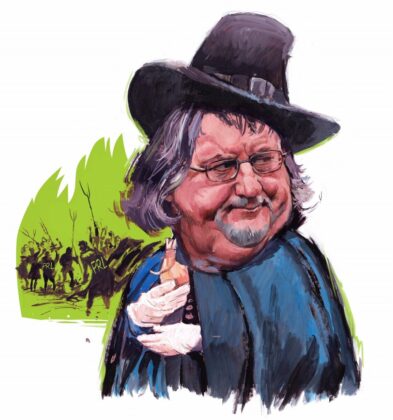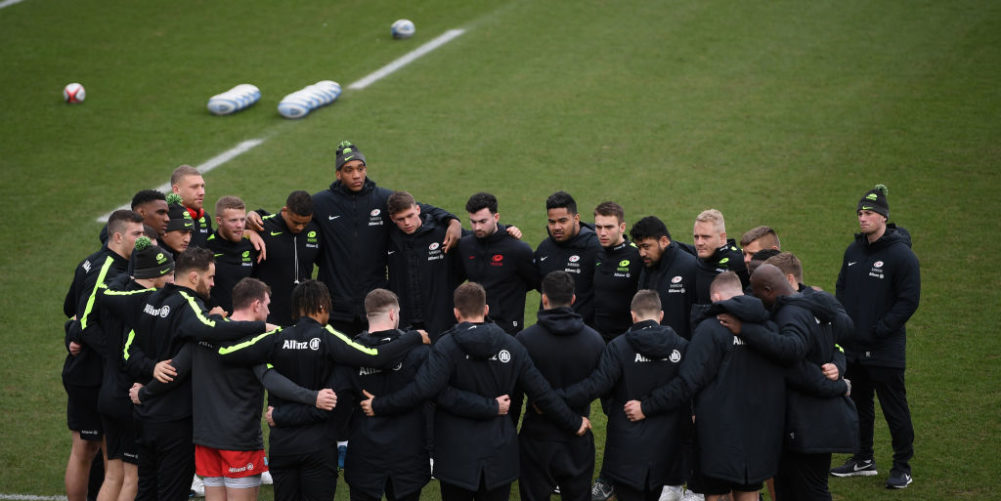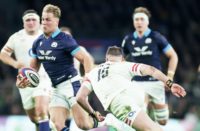HOW can a Premiership Rugby organisation which preaches the moral virtues of a level playing field in salary cap funding – with brutal punishment for transgressors like Saracens – have the rank hypocrisy to deny a newly promoted club from outside their own 13-team cartel anything close to a level playing field?
Why don't the Premiership owners let us know how a club they allocate half their level of funding can be seen as facing anything other than a playing field about as level as the north face of the Eiger?
It is a self-serving attitude that reeks of double standards, and also of an expediency which sees them make up the rules as they go along, using their administrative proxy, PRL, as a convenient shield.
It was evident this week when PRL backtracked on their previous suppression of the detailed decision of the disciplinary panel chaired by Lord Dyson regarding their salary cap dispute with Saracens, to finally make it public and flesh out the skeleton summary they released in November.
It is worth noting that this might never have happened had there not been a clamour in the written Press for the panel's findings to be made public – rather than kept under lock and key at the behest of PRL's secretive, largely unaccountable, investor group.
The Rugby Paper was at the forefront of this, not least in running a front-page story two weeks ago revealing Lord Dyson's call for an unjustified ‘cloak of privacy', imposed by PRL, to be lifted. He added that as a sport followed by millions, “the public has a clear right to know how and why we reached our decisions”.
However, a lynch mob which had decided Saracens were guilty of cheating, whatever the detail of the judgement, had been mobilised ever since the salary cap charge was brought in June. It was soon howling that Saracens are villains who deserve nothing but sporting purgatory.
The attitude of the Saracens administration towards the salary cap is described consistently in the judgement as ‘reckless', and no-one reading the 103-page report can take issue with that finding.
Importantly, however, it does not accuse Saracens of deliberately attempting to breach the cap – which I take to mean they were not found to have deliberately cheated.
However, a £5.36m fine and a 35-point deduction was not enough for the mob. The upshot was that last weekend, before the disciplinary panel's deliberations were published in full, and even though there was no mechanism in the Premiership regulations whereby they could be relegated, Saracens were relegated by PRL.
This was done despite Lord Dyson specifically saying in the judgement that he did not consider relegation to be an appropriate sanction for the breaches of £2.14m in the three seasons his judgement covered (2016-2019).
You could argue that the timing of the pressure heaped on Saracens to agree to relegation was no accident.
It had become clear that the European and English champions would hurdle the 35-point handicap and fight their way clear of relegation – and that their rivals wanted to avoid the drop this season by ensuring that Saracens swung for their new crime of failing to comply with this season's cap.
Saracens, who were in a straight-jacket of existing player contracts and had been ruled to be non-compliant only just over two months ago, had no option but to climb the scaffold.
John Kingston, the former Harlequins coach, encapsulated the bitter resentment felt by some of their Premiership rivals. He called after the November ruling for them to be stripped of their titles, reflecting on the way Quins had been gazumped by Saracens not just on the pitch, but in the transfer market.

Kingston also talked about Saracens sticking two fingers up to the development of English talent by signing stacks of overseas players when they won their first Premiership title in 2011. However, it is not an objective view, as he chose to ignore that the Leicester side that Harlequins beat to win their own first title in 2012 had at least as many overseas signings on their books as Saracens.
It was revealed recently in The Times that Premiership clubs, with Harlequins to the fore, launched their own investigations into Saracens, passing on the findings to PRL's salary cap manager, Andrew Rogers.
It emerged that Harlequins were working on their dossier in late 2018, which included research at Companies House, unearthing information about Saracens owner Nigel Wray's co-investments with leading players.
It is also believed to have coincided with the start of the PRL investigation into Saracens – and this toxic whistleblowing culture was confirmed this week by a PRL spokesman as being a significant factor in its surveillance of the salary cap.
The extended timeline in the Saracens investigation, as well as PRL's failure to be pro-active in enquiring about the club's salary structure is perplexing, and it raises serious questions over whether the policing of the salary cap was fit for purpose.
Much has been made of Saracens being evasive and obstructive during the salary cap investigation, yet Rogers, who has significant powers – which include a fast-track disciplinary process which could approve a six-point league deduction – did not use them.
It took the PRL salary cap manager until October 2018 to start investigating concerns over Saracens' compliance in 2016-17. He did not bring charges until eight months later, in June 2019 and it then took another four months for the disciplinary panel to be convened.
During the course of the year-long process the story was uncovered by the Daily Mail, who in March 2019 published details of Wray's co-investments with Maro Itoje, the Vunipola brothers, Richard Wigglesworth, and Chris Ashton.
Since then the salary cap investigation has hung like a dark cloud over the English game – and even now, with Saracens relegated, the pall has not lifted.
Nor will it any time soon. There are grey areas in the judgement, which is not as condemnatory in its tone towards Saracens as suggested by PRL.
One area of contention is that Rogers arrived at a valuation of £800,000 for Itoje's image rights co-investment, whereas Wray paid £1.6m for them after advice from PwC. By ruling that Rogers' halving of that valuation was reasonable – which some experts dispute – a further £800,000 was added to the Saracens breaches, almost doubling them.
Wray's argument that “investment is not salary” is a distinction that many financial experts accept, however, as the Saracens owner admitted in a letter on the club's website apologising to supporters, he was culpable of non-disclosure – and it was this Lord Dyson took issue with.
However, if Saracens should have been better, so should PRL. Having one salary cap manager to deal with the volume of enforcement work required is a joke, as is putting a job-lot of three years of infractions in front of a disciplinary panel.
The lack of personnel probably explains why PRL are not pro-active in their compliance strategy, and rely instead on whistleblowers with vested interests.
PRL's culture of non-disclosure is also incompatible with a sport which relies on public support, and it is interesting that Damian Collins, the MP who chairs the Parliamentary Digital, Culture, Media and Sport Select Committee, has entered the fray.
Collins wants PRL officials to account for their handling of the Saracens salary cap carnage. He said this week: “It's a real mess, and is something I'm sure the committee will want to look at.”
There have been grave concerns about the cartel-like governance of the Premiership for too long, and what the Saracens affair tells us, above all, is that it's time for change.

























